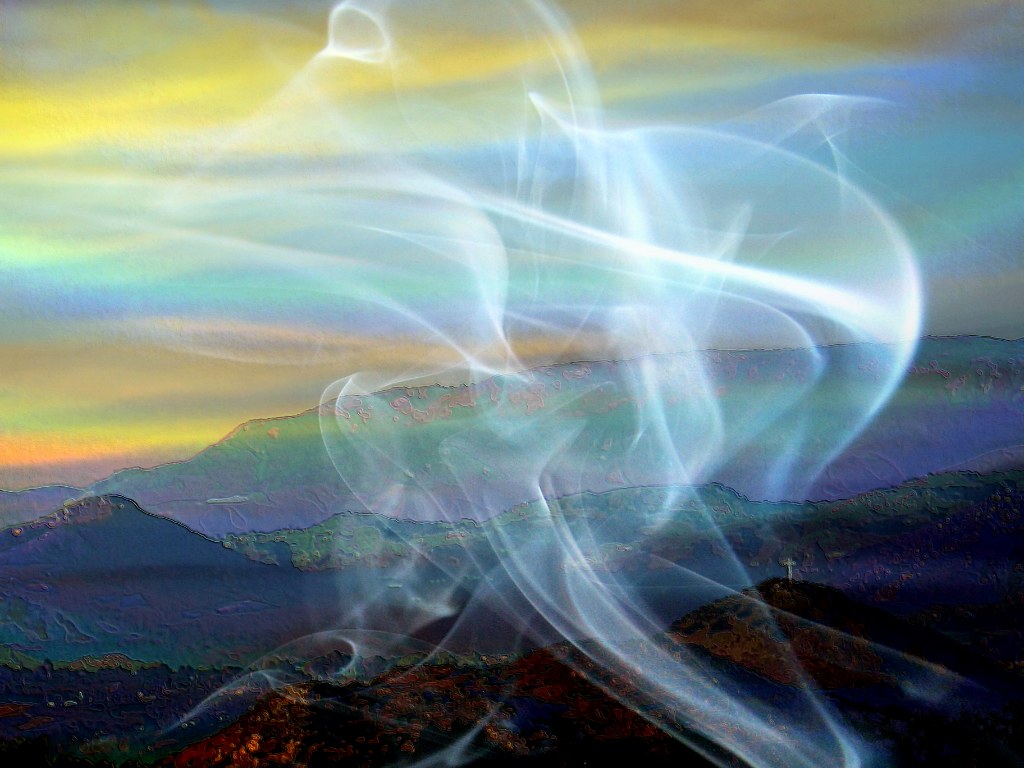THE SEED
“Where can I go from Your spirit? or where can I flee from Your presence? If I ascend up into heaven, thou art there: if I make my bed in hell, behold, thou art there.” Psalm 139:7–8 (KJV)
One of the most comforting and believable truths in Scripture is that God is everywhere. His presence surrounds us, whether in our highest moments or our lowest valleys. While some may try to run or hide because of guilt or shame, the reality remains; there is no hiding place from the eyes of God. From the beginning, this was made evident. When Adam and Eve sinned in the Garden of Eden, their instinct was to hide among the trees (Genesis 3:8–10). But God called out to them; not in condemnation, but in love. He knew exactly where they were, yet He still reached out. Hebrews 4:13 tells us, “Neither is there any creature that is not manifest in His sight: but all things are naked and opened unto the eyes of Him with whom we have to do.” Nothing is hidden from Him. Our thoughts, intentions, and actions are all laid bare before Him. But here is the beauty of God’s omnipresence: He doesn’t pursue us to punish, but to redeem. He invites us into the light of His grace. He assures us that if we confess our sins, He is faithful and just to forgive us and cleanse us. So instead of hiding, let us run into His open arms. There is no safer place than His presence. Surrender to His love, for He sees you, knows you, and desires to restore you.
BIBLE READING: Psalm 139:7–13
PRAYER: Lord, thank You for seeing me fully and still loving me completely. Help me to stop running and start surrendering. Teach me to trust Your grace and walk in the light of Your presence every day. Amen.
PÍPAMÓ FÚN OLORÚN KÌÍSE ÒNÀ ÀBÁYO IRUGBIN NAA
“Nibo li emi o lọ kuro lọdọ ẹmi Rẹ, tabi nibo li emi o ti sá kuro niwaju Rẹ? Bi mo ba gòke lọ si ọrun, iwọ wà nibẹ̀: bi mo ba tẹ́ akete mi si ọrun apadi, kiyesi i, iwọ wà nibẹ̀.” Sáàmù 139:7-8 BMY
Ọkan ninu awọn otitọ itunu ati igbagbọ julọ ninu Iwe Mimọ ni pe Ọlọrun wa nibi gbogbo. Wíwàníhìn- ín rẹ̀ yí wa ká, yálà ní àwọn àkókò tí ó ga jùlọ tàbí ní àwọn àfonífojì tí ó rẹlẹ̀ jùlọ. Nigba ti diẹ ninu le gbiyanju lati ṣiṣe tabi tọju nitori ẹbi tabi itiju, otitọ wa; kò sí ibi ìfarapamọ́ sí lójú Ọlọrun. Lati ibẹrẹ, eyi ti han gbangba. Nígbà tí Ádámù àti Éfà dẹ́ṣẹ̀ nínú ọgbà Édẹ́nì, ìmọ̀lára wọn ni láti fara pa mọ́ sáàárín àwọn igi (Jẹ́nẹ́sísì 3:8–10). Ṣugbọn Ọlọrun pè wọn; kì í ṣe nínú ìdálẹ́bi, bí kò ṣe nínú ìfẹ́. Ó mọ ibi tí wọ́n wà gan-an, síbẹ̀ ó ṣíwọ́. Hébérù 4:13 sọ fún wa pé: “Kò sí ẹ̀dá kan tí kò farahàn lójú rẹ̀: ṣùgbọ́n ohun gbogbo wà ní ìhòòhò, tí a sì ṣí sílẹ̀ fún ojú ẹni tí a ní láti ṣe.” Ko si ohun ti o pamọ fun Rẹ. Awọn ero, awọn ero, ati awọn iṣe wa gbogbo wa ni gbangba niwaju Rẹ. Sugbon nibi ni ẹwa ti Ọlọrun ibi gbogbo: Ko lepa wa lati jiya, sugbon lati rà. O npe wa sinu imole ore-ofe Re. Ó mú un dá wa lójú pé bí a bá jẹ́wọ́ ẹ̀ṣẹ̀ wa, Òun jẹ́ olóòótọ́ àti olódodo láti dárí jì wá kí ó sì wẹ̀ wá mọ́. Nitorina dipo ti o fi ara pamọ, jẹ ki a sare lọ si ọwọ ti o ṣi silẹ. Ko s‘ibi t‘o lewu ju wiwa Re lo. Fi ara rẹ silẹ fun ifẹ Rẹ, nitori O ri ọ, mọ ọ, o si nfẹ lati mu ọ pada.
BIBELI KIKA: Sáàmù 139:7–13
ADURA: Oluwa, o ṣeun fun rírí mi ni kikun ati pe o tun nifẹ mi patapata. Ran mi lọwọ lati da ṣiṣiṣẹ duro ki o bẹrẹ sii tẹriba. Kọ mi lati gbẹkẹle ore-ọfẹ Rẹ Ki o si ma rin ninu imọlẹ iwaju Rẹ lojoojumọ. Amin.
